Social Science Scholars Program
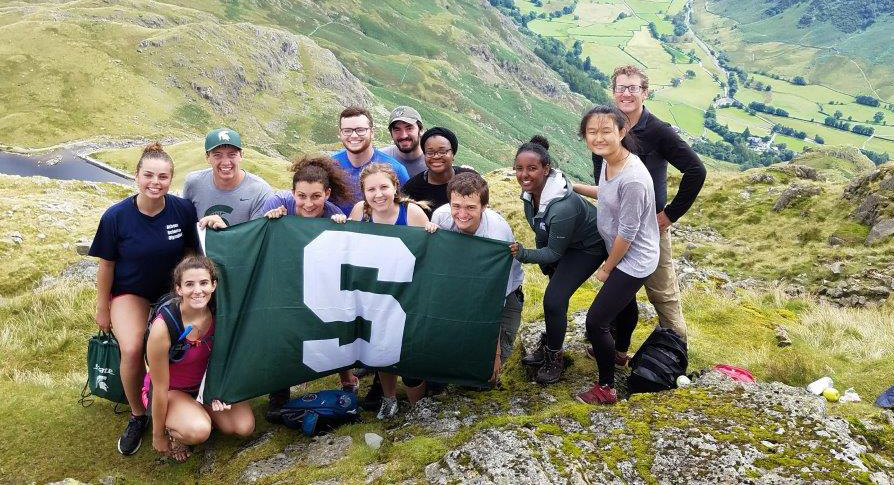
About the program
The Social Science Scholars Program offers its students more opportunities, support, and one-on-one investment than any other undergraduate program in the United States. Each year we recruit diverse, close-knit cohorts of incoming freshmen and rising sophomores who wish to learn in small groups, conduct research, get to know their faculty, find excellent internships, and take on leadership roles on campus and in the community.
What students can expect from the program
Below, program director John Waller as well as students David Koster and Wisdom Henry share their first-hand experiences and expertise surrounding the program and its offerings.
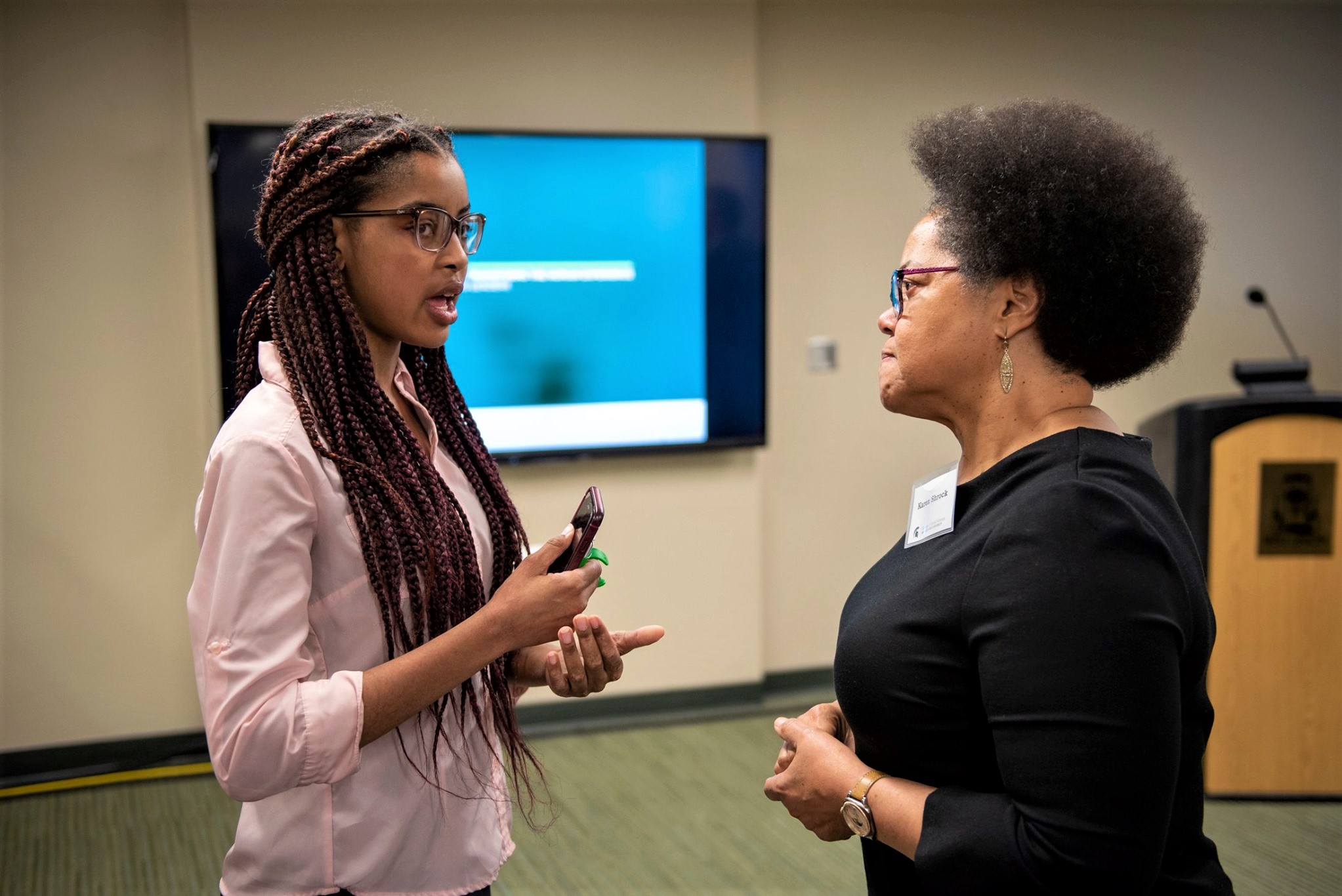 Unmatched student investment
Unmatched student investment
Created in 2013, the Scholars Program has helped over 120 students to excel at MSU. Graduated Scholars have entered a wide range of meaningful careers, gone on to the best graduate and law schools in the U.S., and won several of the world’s most competitive graduate fellowships around the world. If you're looking for the benefits of a globally-recognized research university combined with the friendliness and support of a small liberal arts college, the Social Science Scholars Program is right for you.
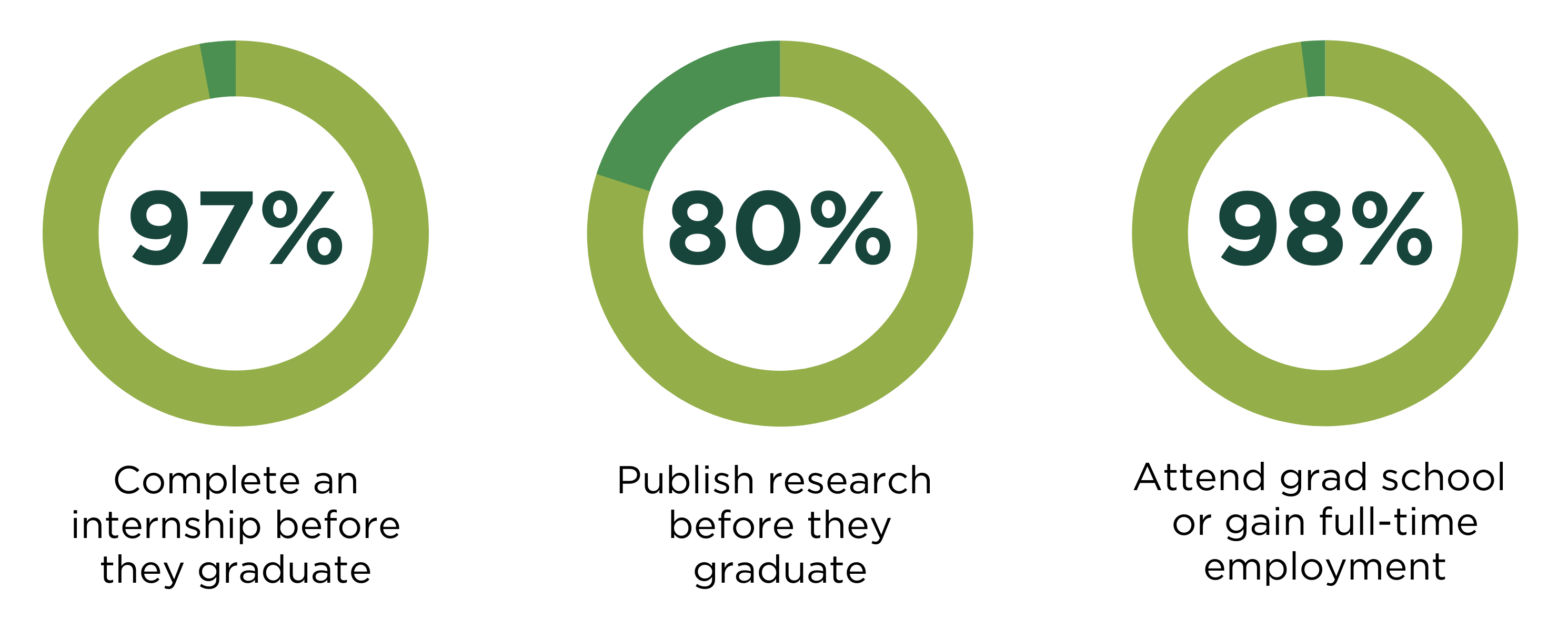
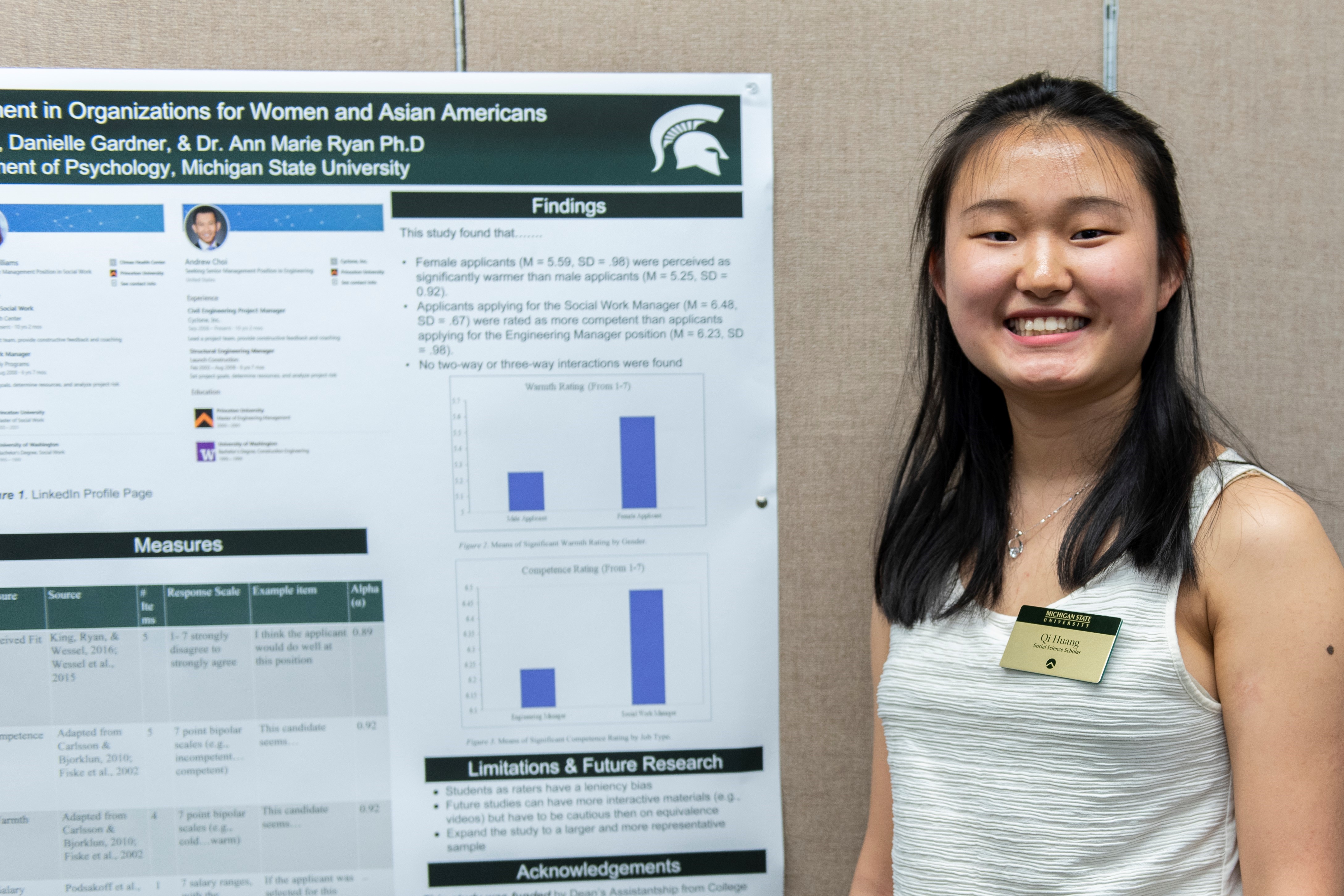 Rewarding research opportunities
Rewarding research opportunities
The opportunity to become involved in serious research as an undergraduate is one of the highlights of the Social Science Scholars Program. Exploring under expert guidance a topic that matters to you will allow you to gain knowledge and confidence and acquire skills that will appeal to graduate schools and prospective employers. Each year, the Scholars Program publishes a book comprising of first-rate articles written by Scholars and several members of the program get to see their work appear in quality academic journals. Currently we have Scholars working in the following research labs:
-
Shorter Showers Initiative
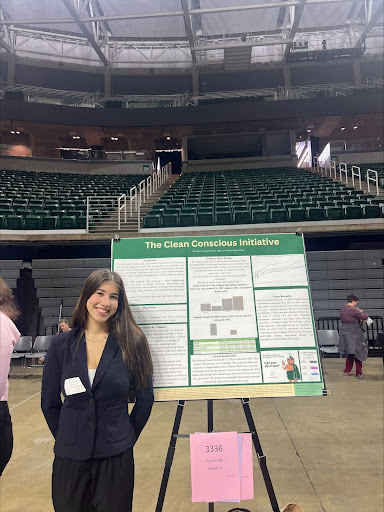 We are collaborating with faculty from the Department of Communications and the Department of Geography, Environment, and Spatial Sciences to study how we might reduce the length of showers taken by MSU undergraduates. Why care about shower length? Simple: the heating of water is a major contributor to climate change due to the carbon emission it entails. Over the past year, we have fitted water meters to about 60 dorm showers and have deployed a variety of experimental messages to see if we can reduce shower length. Our job will be to establish by how much (if at all) we can achieve a reduction in the usage of hot water. And, over the coming semesters, we’ll build on our preliminary studies and experiments with new messages and technologies by which students can monitor the duration of their showers.
We are collaborating with faculty from the Department of Communications and the Department of Geography, Environment, and Spatial Sciences to study how we might reduce the length of showers taken by MSU undergraduates. Why care about shower length? Simple: the heating of water is a major contributor to climate change due to the carbon emission it entails. Over the past year, we have fitted water meters to about 60 dorm showers and have deployed a variety of experimental messages to see if we can reduce shower length. Our job will be to establish by how much (if at all) we can achieve a reduction in the usage of hot water. And, over the coming semesters, we’ll build on our preliminary studies and experiments with new messages and technologies by which students can monitor the duration of their showers. -
Depiction of Drugs in Media
It has become something of a cliché to assert that today’s opioid users are depicted more sympathetically by the American media than were the users of cocaine, particularly in the form of crack, during the 1980s. The modern users of opioids, especially drugs like OxyContin® or synthetic opioids such as fentanyl, are widely said to be characterized as the unfortunate victims of a public health crisis while the users of cocaine in the 1980s were demonized as dangerous criminals who warranted harsh policing and incarceration. Narrative and ethnographic investigations into this alleged difference often posit that racism is the differentiating factor. Our study involves coding hundreds of hours of news footage from the 1980s and the 2010s to ascertain whether it is true that (a) cocaine use is more likely to be stigmatized and (b) African American users are disproportionately depicted in clips related to cocaine use. Our preliminary findings indicate that it is indeed the case racial biases have affected the media’s representation of different drugs. Indeed, it seems likely that media irresponsibility may well have reinforced historically-grounded stereotypes.
-
Earth is My Home Project

The Earth Is My Home (EIMH) Initiative is a leading global source for nature-based education, training, organizing, community, gratitude, and joy. EIMH aims to use evidence-based strategies to seed and propagate new social norms. Specifically, it aims to make it commonplace for people to engage in eco-friendly actions every day and connect with others over their goals. It is a collaborative project between many departments at MSU that is led by Dr. Katherine Alaimo in the School of Agriculture. Olivia Bisson and Jerome Hamilton have been engaged in writing informational blurbs for the actions people are encouraged to complete through the website. In the future, there will be a rollout of the program with testing to see how best to motivate eco-friendly behavior.
-
Recycling Initiatives on Campus
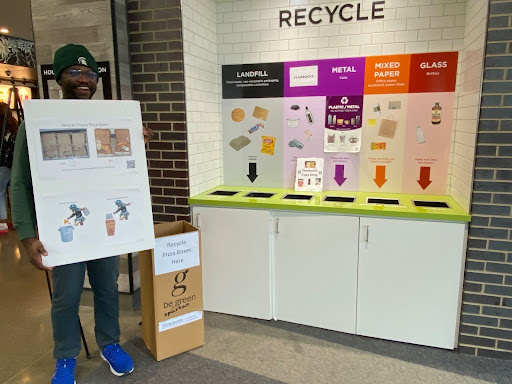 In response to the increased waste generated by students following the introduction of the revamped combo exchange program, scholar Jerome Hamilton (left) collaborated with Dr. Nathan Moore and Dr. Bill McConnell (Department of Geography) to launch the Dump the Chunks Recycling Project. The initiative began by targeting pizza boxes as a key area for improvement, spreading awareness among students about their recyclability and encouraging proper recycling practices. Since last spring, scholar Mason Hambley has continued the project, introducing a new recycling stamp to be placed on pizza boxes. Over the summer, with support from the Provost’s Undergraduate Research Initiative (PURI) Grant, Mason and Dr. Moore explored additional strategies to boost recycling rates. They designed and distributed a student survey to gather insights for further action. Looking ahead, they plan to use the survey results to guide future research and initiatives aimed at increasing campus recycling rates. You can read more about the project in this article by Jerome Hamilton published in a Michigan-based online magazine.
In response to the increased waste generated by students following the introduction of the revamped combo exchange program, scholar Jerome Hamilton (left) collaborated with Dr. Nathan Moore and Dr. Bill McConnell (Department of Geography) to launch the Dump the Chunks Recycling Project. The initiative began by targeting pizza boxes as a key area for improvement, spreading awareness among students about their recyclability and encouraging proper recycling practices. Since last spring, scholar Mason Hambley has continued the project, introducing a new recycling stamp to be placed on pizza boxes. Over the summer, with support from the Provost’s Undergraduate Research Initiative (PURI) Grant, Mason and Dr. Moore explored additional strategies to boost recycling rates. They designed and distributed a student survey to gather insights for further action. Looking ahead, they plan to use the survey results to guide future research and initiatives aimed at increasing campus recycling rates. You can read more about the project in this article by Jerome Hamilton published in a Michigan-based online magazine. -
Mental Health Research Connect
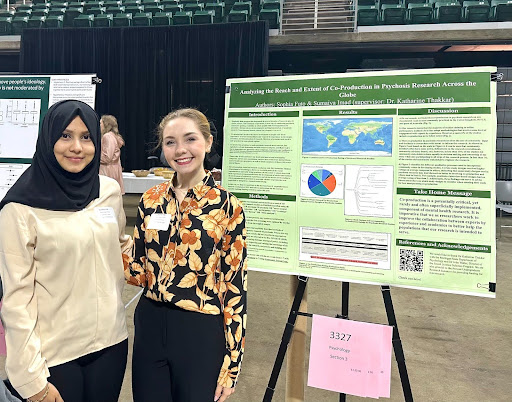 This project forms part of a wider and long-term MSU initiative to promote the welfare of those with psychoses by shifting how researchers decide on priorities in funding and what to investigate. For over a century, the agenda for psychosis research has been invariant: academic or industry scientists have decided what is deemed worthy of study. Their decisions have typically favored the investigation of either the causes of mental illness or the efficacy of different psychoactive compounds. Partly because the results of such studies have been so disappointing, a growing number of clinicians, researchers, and community stakeholders have begun to explore alternative frameworks. In particular, they argue that we need to rely much more on the insights of ‘experts by experience’, those whose psychoses give them a deep awareness of symptomology, the factors that they know to ease or intensify the experience of psychosis, and the challenges to accessing care. A few years ago, Dr. Katharine Thakkar and colleagues in the Department of Psychology launched MSU’s Mental Health Research Connect to reorient research towards what’s called ‘coproduction’, the engagement of those with lived experience of mental illness in academic research. Several Social Science Scholars (including Sophia Futo and Sumaiya Imad featured in this video) have participated in this laudable initiative and the Scholars Program will continue this partnership in the coming years. (Photo: Sophia and Sumaiya presenting their research at the University Undergraduate Research and Arts Forum.)
This project forms part of a wider and long-term MSU initiative to promote the welfare of those with psychoses by shifting how researchers decide on priorities in funding and what to investigate. For over a century, the agenda for psychosis research has been invariant: academic or industry scientists have decided what is deemed worthy of study. Their decisions have typically favored the investigation of either the causes of mental illness or the efficacy of different psychoactive compounds. Partly because the results of such studies have been so disappointing, a growing number of clinicians, researchers, and community stakeholders have begun to explore alternative frameworks. In particular, they argue that we need to rely much more on the insights of ‘experts by experience’, those whose psychoses give them a deep awareness of symptomology, the factors that they know to ease or intensify the experience of psychosis, and the challenges to accessing care. A few years ago, Dr. Katharine Thakkar and colleagues in the Department of Psychology launched MSU’s Mental Health Research Connect to reorient research towards what’s called ‘coproduction’, the engagement of those with lived experience of mental illness in academic research. Several Social Science Scholars (including Sophia Futo and Sumaiya Imad featured in this video) have participated in this laudable initiative and the Scholars Program will continue this partnership in the coming years. (Photo: Sophia and Sumaiya presenting their research at the University Undergraduate Research and Arts Forum.)
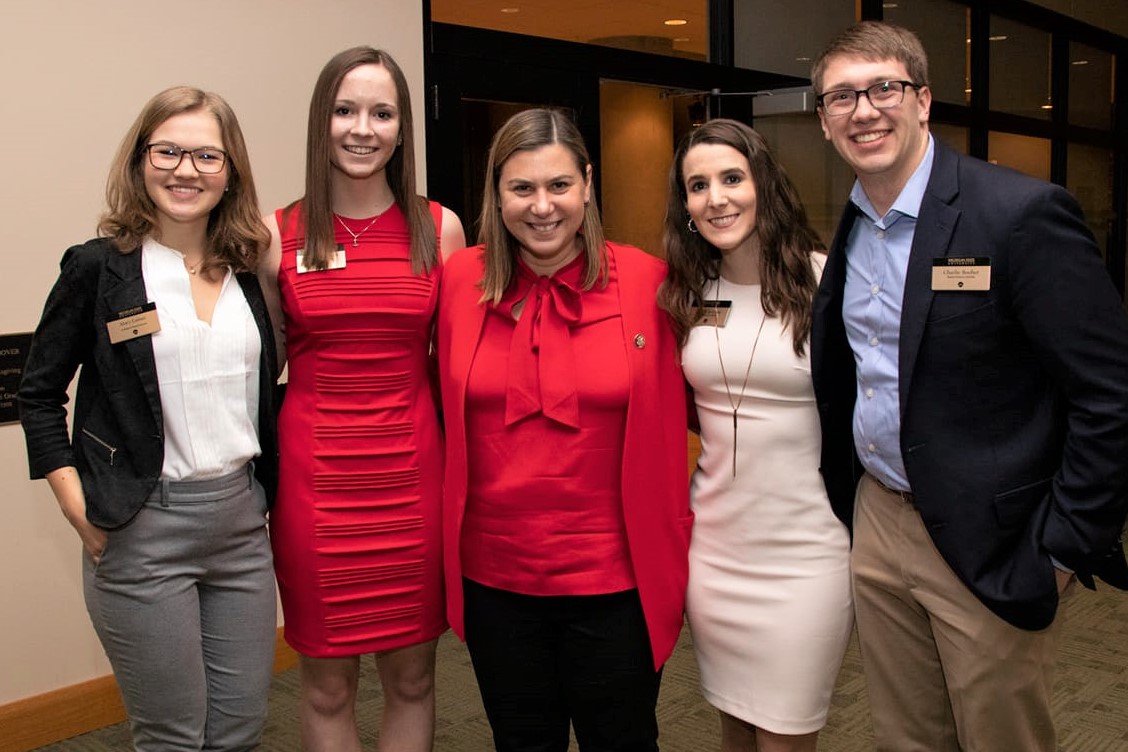 Internship / Community Engagement Opportunities
Internship / Community Engagement Opportunities
The Scholars Program has teamed up with the College of Social Science Development Office to help students in the program secure funding for unpaid internships, and has also combined efforts with many campus and community organizations to provide opportunities for Scholars to gain real-world experience and make a difference while gaining valuable career experience. Our community partners are:
-
The Good Counsel Services, LLC
You can read more about this wonderful partnership in this newsletter.
-
Natural Resources Defense Council
Each year we team up with the NRDC, one of the country’s most influential pro-sustainability nonprofits, to offer one Scholar an internship with the office that covers the Michigan and Illinois region. Scholars have worked on all sorts of projects - from electrification in the northern parts of Michigan to clean water rights and climate change policy. This partnership has made a profound difference to the students who are lucky enough to have received the mentorship of NRDC employees like Derrell Slaughter and Cyndi Roper.
-
Michigan Health Council
Michigan Health Council (MHC) is a superbly-run nonprofit organization which seeks to address the needs of health care leaders, professionals, employers, educators, and students. For three years, Scholars (such as Nya Todd, Kate Friedan, and Tazkira Amin) have interned with MHC working on a variety of projects. These internships have also led to jobs post-graduation for several Social Science Scholars.
-
Generations Connect
 This initiative pairs MSU students, usually Social Science Scholars, with local older adults so that they can form meaningful intergenerational relationships. Programs like Generations Connect aim to enhance wellbeing and quality of life while addressing issues such as isolation, loneliness and ageism for both students and older adults in the community. Under the leadership of Dr. Melissa Fore, the program has so far brought mutual enjoyment to dozens of pairs who talk and meet regularly. We also organize regular get-togethers for everyone involved, including trips to performances at the university’s performing arts center, the Wharton.
This initiative pairs MSU students, usually Social Science Scholars, with local older adults so that they can form meaningful intergenerational relationships. Programs like Generations Connect aim to enhance wellbeing and quality of life while addressing issues such as isolation, loneliness and ageism for both students and older adults in the community. Under the leadership of Dr. Melissa Fore, the program has so far brought mutual enjoyment to dozens of pairs who talk and meet regularly. We also organize regular get-togethers for everyone involved, including trips to performances at the university’s performing arts center, the Wharton. -
Sunshine Community Garden
The Social Science Scholars Program has a wonderful community outreach program in partnership with the Fledge, an anti-poverty organization in Lansing. Thanks to this partnership, a neighborhood plot of land that was once a blighted property is now a vibrant community garden – the Daniella and Charlie Sunshine Garden - that offers residents on Riley Street in South Lansing access to fresh vegetables and a chance to spend time in a green space. Around the corner is a women and children’s shelter we partner with to host programming related to gardening and food. Through the Honors College, we hold yearly research seminars based on the garden and related issues such as food sovereignty and community engagement. We hope to expand the reach of the garden by hosting children’s classes and partnering with local organizations to fully utilize the green space.
-
Citizens for Prison Reform
The Scholars Program has formed a fruitful partnership with a Lansing-based nonprofit which seeks to increase oversight of Michigan’s prisons. CPR was founded by Lois Pullano, currently its Executive Director, in 2012. She became passionate about criminal justice and prison reform work in 2007 after her son who has mental illness was sentenced into the adult system at the age of 15. Prior to this, Lois worked for a children's mental health organization. The Scholars Program’s faculty and several of its students have been working with Lois and her team to lobby for legislation that will make it easier to monitor what is happening in prisons and we are engaged in a research project to examine the credibility of policies that can deny prisoners the right to receive visitations from family members. Below you can see some photos of Scholars participating in CPR events and giving an interview to Channel 6 news.
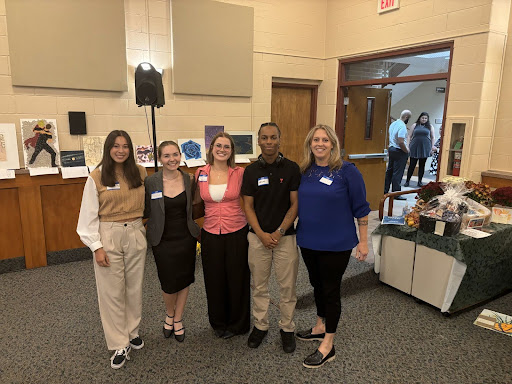
 Exciting study abroad trip
Exciting study abroad trip
Scholars will have a unique opportunity to travel throughout England, while embarking on unforgettable historical adventures and one-of-a-kind cultural experiences. This 3-week trip will give students the opportunity to develop meaningful relationships with their cohort, further their understanding of societal conflicts, and develop their research interests as they travel to different cities and villages across the pond.
Additional perks
On top of the research, internship, and study abroad opportunities, the Social Science Scholars Program offers students a sense of community and support. Students in the program can expect:
- Access to personalized mental health care, thanks to the Gerson Family Mental Health Initiative
- Scholars Mentorship Program
- Monthly professional development events hosting College of Social Science alumni
- Access to sustained faculty and staff resources for academic, professional, and research support
- Benefits of a small liberal arts learning community combined with the opportunities and diversity of a Big 10 school through small cohort-based classes
Social Science Scholars Brochure
Learn more about the Social Science Scholars Program and download our brochure.
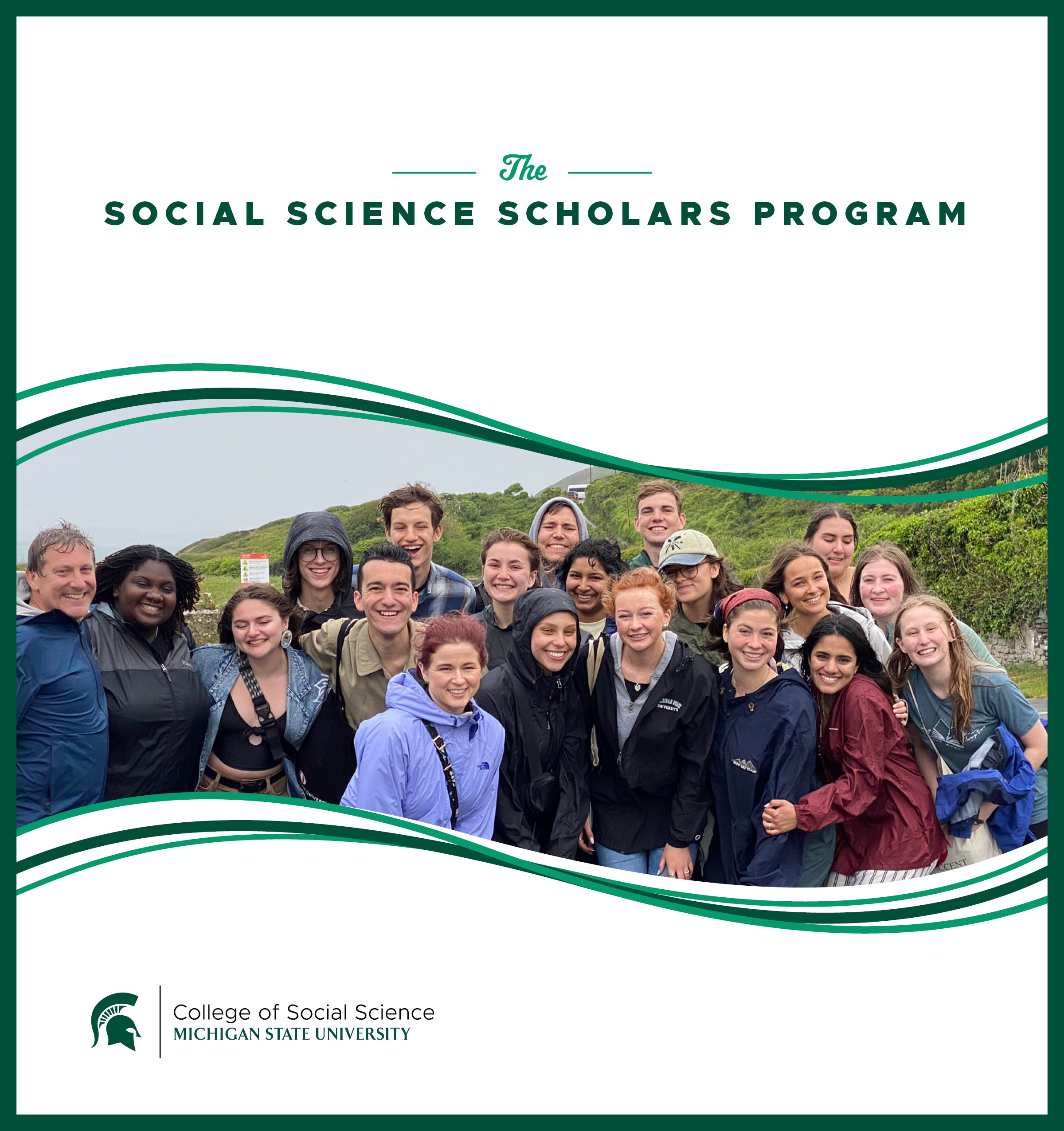
For more information, contact:
John Waller
Director
Social Science Scholars Program
wallerj1@msu.edu
Karen Holt, Ph.D.
Assistant Director, Social Science Scholars Program & Associate Professor, MSU School of Criminal Justice
holtkar1@msu.edu
If you are interested in supporting the program, please contact:
Cathy Foster
fosterc@msu.edu

